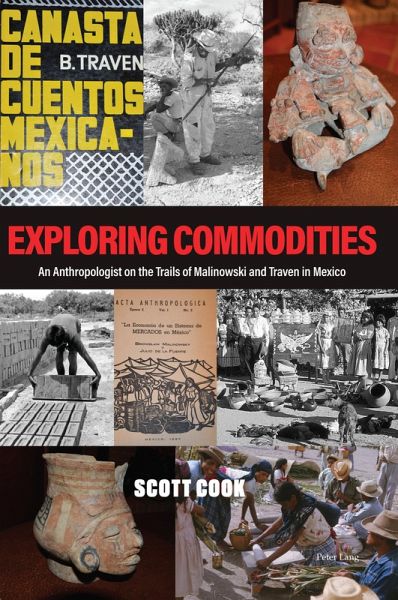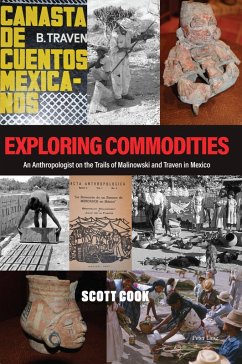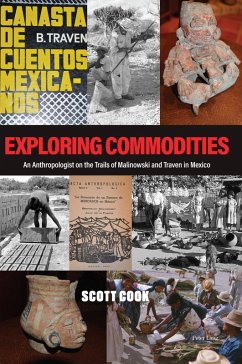
Exploring Commodities (eBook, ePUB)
An Anthropologist on the Trails of Malinowski and Traven in Mexico
Versandkostenfrei!
Sofort per Download lieferbar
Statt: 58,80 €**
49,95 €
inkl. MwSt.
**Preis der gedruckten Ausgabe (Broschiertes Buch)
Alle Infos zum eBook verschenkenWeitere Ausgaben:

PAYBACK Punkte
25 °P sammeln!
Commodities of one type or other have been produced, transferred and consumed in the economic life of humanity through every epoch of its development and forms of sociocultural organization, but are pervasive in the varieties of capitalism dominating contemporary world economies. Even labor, a necessary element in all forms of commodity production, has itself been commoditized. Embodying three kinds of potentially realizable value - use, exchange, and symbolic - commodities reflect and affect various facets of humanity's sociocultural life. They have been investigated by knowledge producers ra...
Commodities of one type or other have been produced, transferred and consumed in the economic life of humanity through every epoch of its development and forms of sociocultural organization, but are pervasive in the varieties of capitalism dominating contemporary world economies. Even labor, a necessary element in all forms of commodity production, has itself been commoditized. Embodying three kinds of potentially realizable value - use, exchange, and symbolic - commodities reflect and affect various facets of humanity's sociocultural life. They have been investigated by knowledge producers ranging from Aristotle and Ibn Khaldun through Adam Smith, David Ricardo, and Karl Marx down to a whole host of twentieth-century economists and others like the anthropologist, Bronislaw Malinowski, and the storyteller, B. Traven.
In this book noted economic anthropologist Scott Cook draws on many decades of fieldwork in the Mexican states of Oaxaca and Tamaulipas to take on the challenge of crafting an academic memoir designed to provide insights into the role of commodities in his own life and times and especially in his anthropological career. He undertakes this project in conjunction with a running interpretation of the contrasting approaches of Malinowski and Traven to the topic of commodity production and exchange in Mexico.
In this book noted economic anthropologist Scott Cook draws on many decades of fieldwork in the Mexican states of Oaxaca and Tamaulipas to take on the challenge of crafting an academic memoir designed to provide insights into the role of commodities in his own life and times and especially in his anthropological career. He undertakes this project in conjunction with a running interpretation of the contrasting approaches of Malinowski and Traven to the topic of commodity production and exchange in Mexico.
Dieser Download kann aus rechtlichen Gründen nur mit Rechnungsadresse in A, D ausgeliefert werden.













